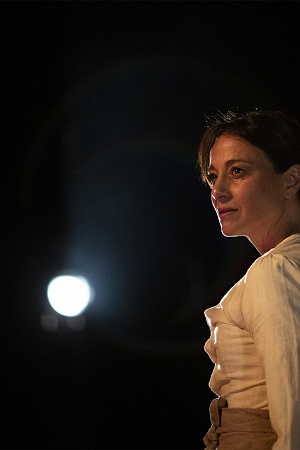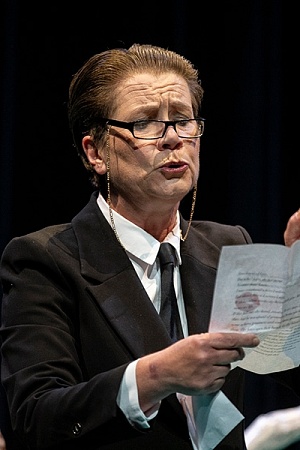Miss Julie (Melbourne Theatre Company) ★
Strindberg. How do you solve a problem like August? In his own time he was considered extreme. When Strindberg (1849–1912) gave Miss Julie to his publisher, Joseph Seligmann, in 1888, Seligmann insisted it be cut to make it more palatable for the Swedish public. The play wasn't published uncensored until 1984. In the nineteenth century, Miss Julie, a chamber play in which the daughter of an aristocratic estate is seduced by her father's valet, was thought scandalous for its frank articulations of sexual desire, bestiality, and menstruation. (Strindberg may be the only canonical playwright to mention periods.)
Now, of course, sexuality isn't nearly so scandalous. These days, Strindberg is on the nose because of his toxic misogyny. There's no avoiding it, in his writing or in his life. Strindberg's relentless misogyny makes Michael Meyer's excellent biography (1985) miserable reading. In his attitudes to the 'woman question', Strindberg was influenced by Darwinism and, of course, Nietzsche, but he gave these ideas his own pathological spin.
Continue reading for only $10 per month. Subscribe and gain full access to Australian Book Review. Already a subscriber? Sign in. If you need assistance, feel free to contact us.














Comment (1)
Leave a comment
If you are an ABR subscriber, you will need to sign in to post a comment.
If you have forgotten your sign in details, or if you receive an error message when trying to submit your comment, please email your comment (and the name of the article to which it relates) to ABR Comments. We will review your comment and, subject to approval, we will post it under your name.
Please note that all comments must be approved by ABR and comply with our Terms & Conditions.